Without exceptional teachers, students will get nowhere. Ľubomír Tomáška is a scientist and educator who tries to pass his experience on to new generations of students at the Faculty of Natural Sciences of the Comenius University in Bratislava.
He is this year's ESET Science Award laureate in the category Outstanding Academic in Slovakia. As part of his work Ľubomír Tomáška also studies ways how cells communicate.
What is the communication between cells like? Is it something people would say to each other?
Sometimes we liken them to human communication, but it is more of an anthropomorphic metaphor.
So what mechanisms do they use to communicate?
In order for a body to function, it is necessary for the cells comprising it to coordinate together activities such as metabolism, division, differentiation and even death. This coordination is ensured through complex communication networks, within which cells send various chemical, electrical, mechanical signals, and at the same time have sensors that can detect these signals and interpret them.
Furthermore, the cells themselves are not just some vessels full of chemicals, but sophisticated structured entities with a complex infrastructure. This means various physically and functionally connected departments, which we call organelles. Their activities must also be coordinated with one another. This is done by sending different messages reporting about the state of the respective part of a cell.
To stay up to date with what scientists in Slovakia or Slovak scientists around the world are doing, subscribe to the Slovak Science newsletter, which will be sent to readers free of charge four times a year.
In your research you also study the end sections of DNA molecules in chromosomes. Why?
The ends of chromosomes, or telomeres, are particularly susceptible to damage that can result in major changes in DNA, which often lead to oncogenesis. We are looking for the tools that cells use to protect the telomeres, or signals by which a cell informs others of problems with telomeres.
How can we imagine telomeres?
Telomeres can be likened to the protective, reinforced end on shoelaces that protect them from fraying. When this protection is lost, the laces gradually lose their function.
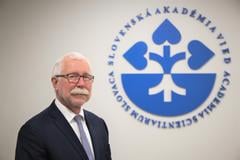
What led you to this field of research?
As a student, I entered the laboratory of Ladislav Kováč (Slovak biochemist - Ed. note). As a thesis, he assigned me the task of characterising the ends of a microorganism's chromosomes. It was a somewhat unexplored field in the mid-1980s, and a very attractive scientific problem. I'd had no experience working in a laboratory and was supposed to contribute. It should be noted that I did not solve this problem in my diploma thesis - we managed to do that only some time later. But the feeling that I was working on something very important was tremendous motivation for me. I try to use this personal experience to this day as a teacher. Students in our laboratory work on non-trivial problems, the purpose of which is not only to master techniques, but to experience the feeling of real scientific research.
What do you consider to be your greatest achievement so far?
I prefer to mention an episode that was important regarding my decision to remain in science after school. I finished my studies in the spring of 1989, and in the summer I joined basic military service. A year later I returned to the faculty. In the autumn of 1990, thanks to the contacts of my mentor Ladislav Kováč, I entered the laboratory of the prominent biochemist Efraim Racker at Cornell University, where I spent almost three years. That was an important formative moment. Not only was Racker a premier league scientist, but also a teacher. Together with the opportunity to participate in teaching activities at an Ivy League university, it resulted in a lot of inspiration for my later teaching activities. In addition, I increased my confidence to a certain extent.
What do you mean?
I found that I could talk with people whose results I had previously only read about in articles or textbooks. Moreover, after less than a year, Racker died and it was not certain whether the laboratory team would be disbanded. However, Racker's colleague from the department, David Shalloway, was willing to stand in, so I got the opportunity to finish the projects that had already been started.
The technician Ross Resnick and I managed to write and publish three papers as completely unknown authors. Neither of us had a doctorate at the time. The first article was accepted for publication in the Journal of Biological Chemistry by Nobel Prize winner Edwin Krebs without requiring any change. Even 30 years later it seems like a made-up story to me. Anyway, it gave me some tangible hope that I might be able to do things in a lab that make sense to the wider scientific community.

What motivated you to start working as a teacher?
My experience illustrates how important a role a teacher plays not only in education in the narrow sense, but literally in influencing a young person's life. Thanks to our university tutor Vlasta Kováčová, I got to know her husband Ladislav Kováč, a world-renowned biochemist. I gained the opportunity to work on an attractive scientific problem and daily discussions with smart people though they did not work directly at the university, for example with the biochemists Miroslav Greksák and Petr Šmigán, the biophysicist Peter Fedor.
We talked not only about science, but also about history and culture. Maybe I am idealising it now, but the Institute of Animal Physiology of the Slovak Academy of Sciences in Ivanka pri Dunaji was a cultivation bank with a unique atmosphere. There were also teachers at the Faculty of Natural Sciences who not only gave us textbook knowledge, but also discussed with us the questions for which there were no answers.
They alerted us to the gaps in our knowledge and fulfilled the mission of science education. I really liked this form of interaction. So when I received an offer to join the faculty after November 1989, I decided to take advantage of it.
What do you personally enjoy the most about your work as a teacher?
Teaching offers one enormous added value. Every teaching activity is a potential source of positive emotion: whenever students at a lecture are on the same page with you, when they ask you a good question, when they obtain an interesting experimental result, and yes, even when they correct you or challenge your point of view.
However, the biggest benefit for a teacher is the success of the students they had the opportunity to teach. The fact that our students are the authors of excellent publications, that our graduates are admitted to prestigious European institutions, that they can obtain grants, start successful companies; and are socially engaged and not indifferent to public matters. All this indicates that even if we did not directly help them in their success, we at least did not inhibit the development of their talent.
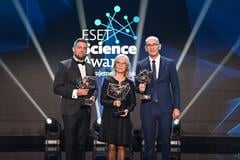
Is there anything you particularly follow in your teaching?
At the beginning of my career, I believed that being a teacher was not difficult. That it was enough to imitate the teachers and colleagues whom I considered to be good and to avoid stereotyping those whose performances I did not like. However, very quickly I ran into a problem. One can imitate only within the limits defined by their personality. Beyond these limits the imitation is only caricature.
In addition, the popularity - or unpopularity - of a teacher does not always correlate with the quality of their performance. That is, what a teacher actually teaches students. I told myself never mind, that I will simply experiment and improve my skills through trial and error. The problem with this approach is that an error in a teacher's experiment can often mean serious damage to a student. And I made too many of those mistakes solely due to the ignorance of elementary rules. Therefore, I began to additionally cover my didactic gaps by reading literature related to the performance of teachers.
However, adherence to didactic principles does not mean that one must give up experimenting in teaching. On the contrary, everyone who has the privilege to be a teacher should actively seek a way to use their individual gifts for the benefit of education. And that can only be discovered through empirical testing and introspection. In addition, breaking out of stereotypes is an effective tool against burnout. Finally, to loosely paraphrase Noam Chomsky: "If you teach the way you taught five years ago, either your field is dead or you are dead."
What will the future generation of scientists in Slovakia be like in the field you teach?
Based on my 30-year teaching experience, I can declare that the level of the best students today and three decades ago is very similar, at least at our faculty. They may have different skills, but their talent and creativity are comparable to their predecessors. By the way, although the exodus of Slovak high school graduates is a real problem, declaring that only bad students remain is a false and unfair generalisation.
The problem is that due to the multiple and mainly non-selective admissions of graduates to universities, the overall average quality of the students is reduced. Whereas in my day about 30 people studied biology, today we accept almost 10 times as many applicants without any significant selection. This means predominantly large and therefore anonymised courses, and teachers investing their time in weaker students at the cost of reducing the number of individual teacher-student discussions, which should be the basis of university education.
Will they be able to compete with foreign countries?
I'm convinced that with a good choice of a university, or a study programme with high-quality teachers - and I think there are not as few of them as it might seem in the media - and luck on the part of teachers, a student in Slovakia can get at least as good an education as abroad. Incidentally, this also illustrates the success of our graduates in competing for doctoral positions at prestigious Western institutions. The problems are revealed in the third degree of study, and fully when supplementing the ageing collectives with young, talented and ambitious scientific-pedagogical workers who have experience from abroad. In the future, the competitiveness of graduates will depend on them. Despite various support schemes, however, this "rejuvenation" is sporadic rather than systematic.
In what ways have your students surprised you?
One of the benefits of a university environment is that thanks to the students it is a source of daily – and often positive – surprises: their surprising questions, as well as surprisingly original answers, the surprising results of experiments and their surprising interpretations. But also a surprising level of empathy, willingness to help each other, to engage beyond the scope of one's duties.
This article is supported by the ESET Foundation, which awards the ESET Science Award to exceptional scientists every year.



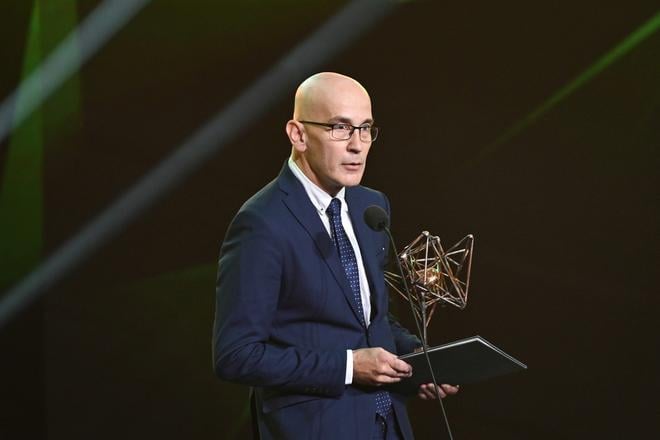 Ľubomír Tomáška. (source: ESET Science Award/Linda Kisková Bohušová )
Ľubomír Tomáška. (source: ESET Science Award/Linda Kisková Bohušová )
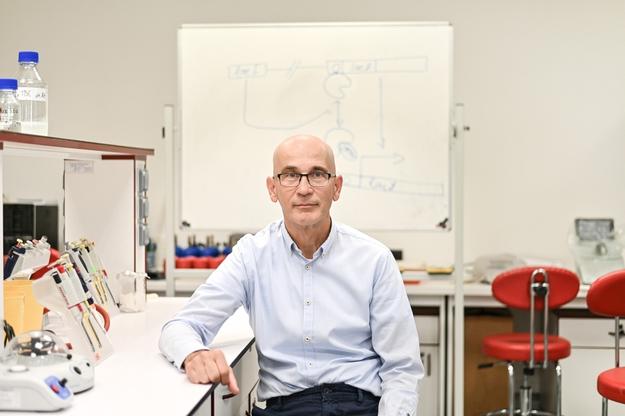 (source: ESET Science Award/Linda Kisková Bohušová )
(source: ESET Science Award/Linda Kisková Bohušová )
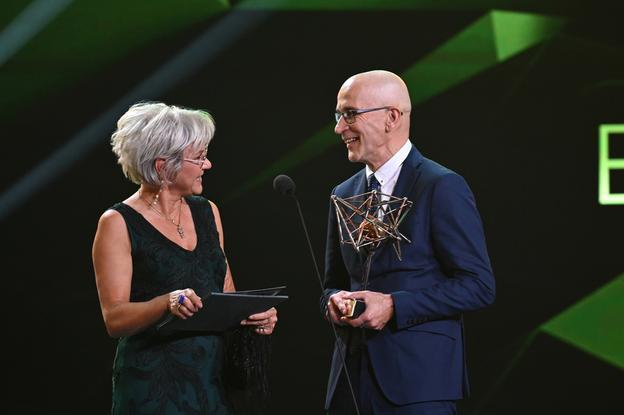 (source: ESET Science Award/Linda Kisková Bohušová )
(source: ESET Science Award/Linda Kisková Bohušová )